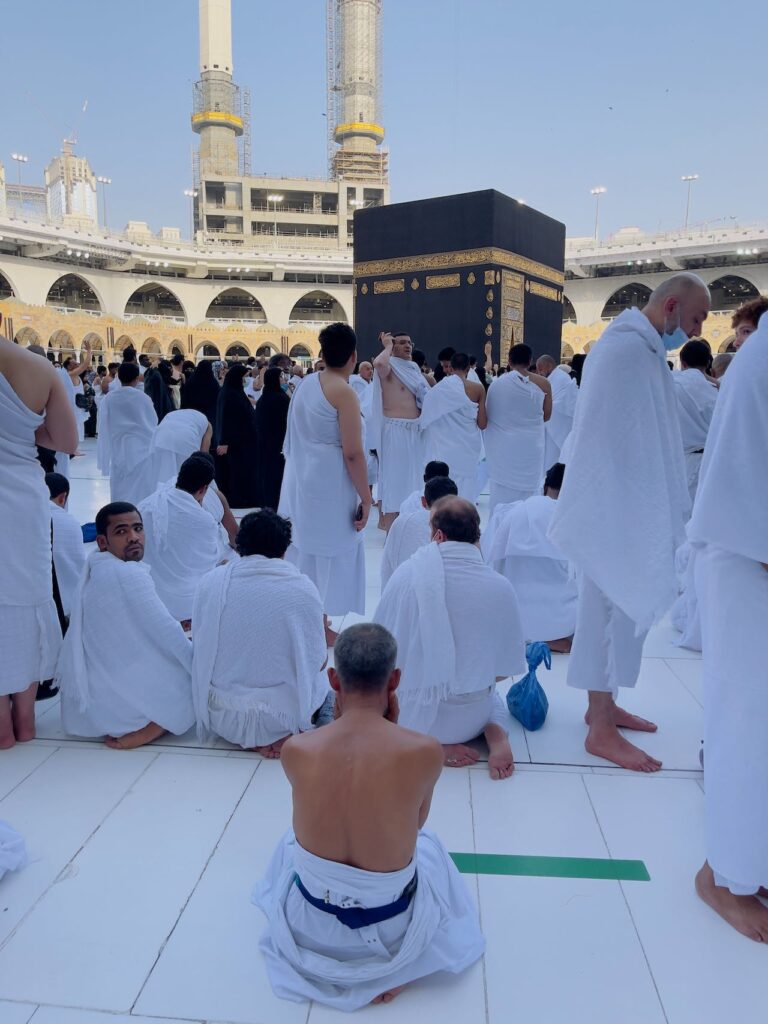Ihram is a sacred state that Muslims enter before performing Hajj or Umrah pilgrimages. While it is widely recognized as an essential aspect of the pilgrimage, it is natural for parents to wonder if Ihram is obligatory for their children. In this article, we will delve into the topic of Ihram for kids, discussing its importance, steps, rules, and tips for explaining and implementing it effectively.
Is Ihram Obligatory for Kids?
The question of whether Ihram is obligatory for kids arises due to their young age and limited understanding of the pilgrimage rituals. According to Islamic scholars, children are not obligated to enter the state of Ihram. However, it is highly encouraged for parents to introduce and involve their children in the experience, nurturing their love for the sacred journey from an early age.
Ihram for Kids Steps
Firstly, Explain the Purpose
Start by explaining to your children the significance of Ihram and its connection to the pilgrimage. Emphasize the idea of spiritual purification and closeness to Allah.
Secondly, Dressing in Ihram
Teach your kids how to dress in traditional Ihram garments, which typically consist of two unstitched white sheets for males. While modest clothing for females. Demonstrate the proper way to wrap the sheets and ensure they understand the importance of maintaining their modesty.
Thirdly, Intention and Niyyah
Help your children understand the intention behind entering the state of Ihram. Teach them to make the Niyyah (intention) for Hajj or Umrah, even if they are not yet obligated to perform it.
Lastly, the Prohibition of Certain Actions
Inform your kids about the actions that are prohibited while in Ihram, such as cutting nails, shaving, using scented products, and engaging in arguments or inappropriate behavior.
Encourage them to avoid these actions during the Ihram period.
How to Explain Ihram for Kids?
- Firstly, Use Simple Language:
Tailor your explanations to your children’s age and level of understanding. Use simple language and relatable examples to help them grasp the concept of Ihram.
- Secondly, Visual Aids:
Utilize visual aids such as pictures, diagrams, or videos to enhance their comprehension. Show them images of people in Ihram attire and illustrate the different steps involved.
- Lastly, Storytelling
Narrate engaging stories from Islamic history that highlight the significance of the Ihram and the spiritual journey it represents. This will captivate their imaginations and foster an emotional connection to the concept.
Ihram for Kids Rules
- Age Considerations:
While children are not obligated to enter Ihram, it is advisable to involve them in the process once they reach a certain age where they can understand the rituals and appreciate their significance.
The exact age may vary depending on the child’s maturity level.
- Modesty:
Teach your kids the importance of modesty while in Ihram. Emphasize the need to avoid revealing clothing or any behavior that may compromise their state of purity.
- Accompaniment:
Ensure that kids are always accompanied by responsible adults during the pilgrimage, as they may require guidance and support throughout the journey.
Tips for Ihram for Kids
- Familiarize your children with the rituals of Ihram well before the actual journey. This will help them become accustomed to the concept and reduce any anxiety they may feel.
- Understand that children may find it challenging to adhere to all the rules of Ihram.
- Show patience and provide positive reinforcement to motivate them along the way.
- Plan age-appropriate activities during the Umrah to keep your children engaged and make the experience enjoyable for them.
- This could include storytelling, educational games, or visits to historical sites.
Conclusion
In conclusion, While Ihram is not obligatory for kids, introducing them to this sacred state from an early age can deepen their understanding of the pilgrimage and foster a lifelong connection to their faith. By explaining the steps, rules, and significance of Ihram in a child-friendly manner, parents can ensure their children appreciate the spiritual journey and develop a sense of reverence for this sacred experience.






